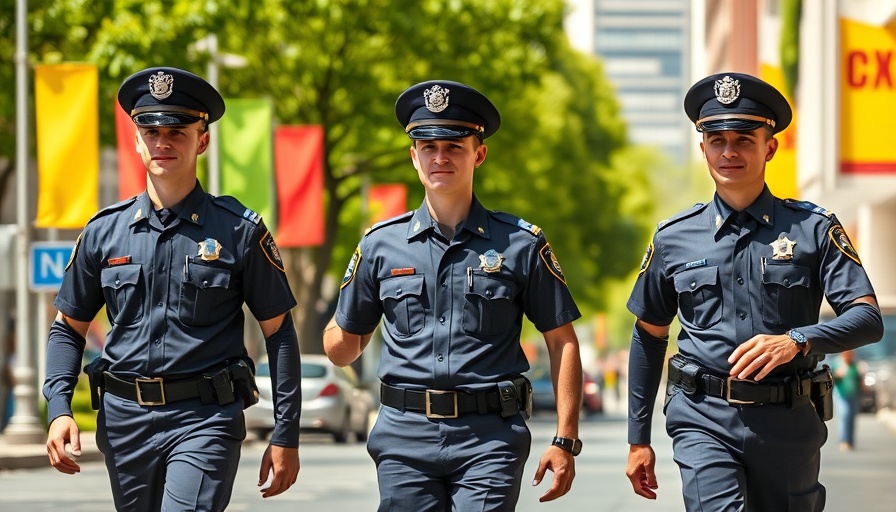
Trump Establishes Task Force for 2028 Olympics: Implications for Public Safety
In a bold move to ensure the security and success of the upcoming 2028 Olympic Games in Los Angeles, President Donald Trump signed an executive order establishing a dedicated task force. As the first Olympics hosted in the U.S. since the 2002 Winter Games in Salt Lake City, the stakes are high for an event that lawmakers and citizens alike anticipate to be a defining moment for the nation.
Why the 2028 Olympics Matter
Trump's proclamation during the signing ceremony emphasized not only the excitement that the Olympics brings to the country but also the critical need for strategic planning around public safety. Hosting an event of this magnitude entails an unprecedented influx of visitors, including athletes, media, and fans, all requiring comprehensive preparations for their arrival and security.
The Task Force: Who's In Charge?
Trump will chair the task force himself, in partnership with Vice President JD Vance. The involvement of key Cabinet secretaries and administration officials indicates a concerted effort across multiple departments to tackle the challenges posed by such a large-scale event. Among the notable members is Attorney General Pam Bondi and Secretary of Homeland Security Kristi Noem, both integral to planning necessary safety protocols.
Security Measures and Expectations
As concerns about public safety intensify, outlines to potentially deploy National Guard troops reflect a commitment to an extraordinary level of vigilance. Trump's announcement that “we’ll do anything necessary to keep the Olympics safe” resonates with those in law enforcement who must prepare for possible threats during large gatherings, thereby intersecting with ongoing discussions on police funding and resource allocation.
Public Safety: A Priority for Everyone
The intent to create streamlined processes for visa processing and credentialing shows an understanding of the logistical challenges ahead and an acknowledgment of public safety as paramount. Protecting citizens and event participants while allowing for the smooth flow of the Games will require an integrated approach, aligning local law enforcement agencies with federal strategies.
Community Engagement and Police Relations
For police departments in Los Angeles and beyond, the anticipation of the Olympics poses both opportunities and challenges. Ensuring positive police-community relations will be critical in preventing incidents reminiscent of other high-profile events characterized by tensions between law enforcement and communities. Involving community stakeholders in the planning process could foster transparency and trust.
The Potential Cultural Impact of the Games
Hosting the Olympics can serve as a catalyst for long-lasting change. The event’s ability to showcase American values on a global stage stands juxtaposed with the pressing concerns of police reform and accountability, increasing pressure on law enforcement agencies nationwide to adapt their practices and policies. Trump's praise for specific measures against transgender participation highlights these cultural debates, reminding us that sport often reflects broader societal discussions.
Decision-Making for Law Enforcement
As police agencies prepare for increased scrutiny during the Olympics, it’s essential to adopt evidence-based training and use real-time data analytics to manage resources efficiently. Technology innovations within law enforcement, like body cameras and AI analytics, present a way to increase transparency and accountability while ensuring the safety of both officers and the communities they serve. Preparing for potential challenges is an integral lesson from past events.
The 2028 Olympics represents more than just athletic competition; it embodies a critical juncture where law enforcement, public safety, and community collaboration must converge. As the nation gears up, law enforcement leaders should engage actively in shaping policies and practices that not only facilitate a successful Olympics but also pave the way for future public safety initiatives.
 Add Row
Add Row  Add
Add 

 Add Element
Add Element 


Write A Comment